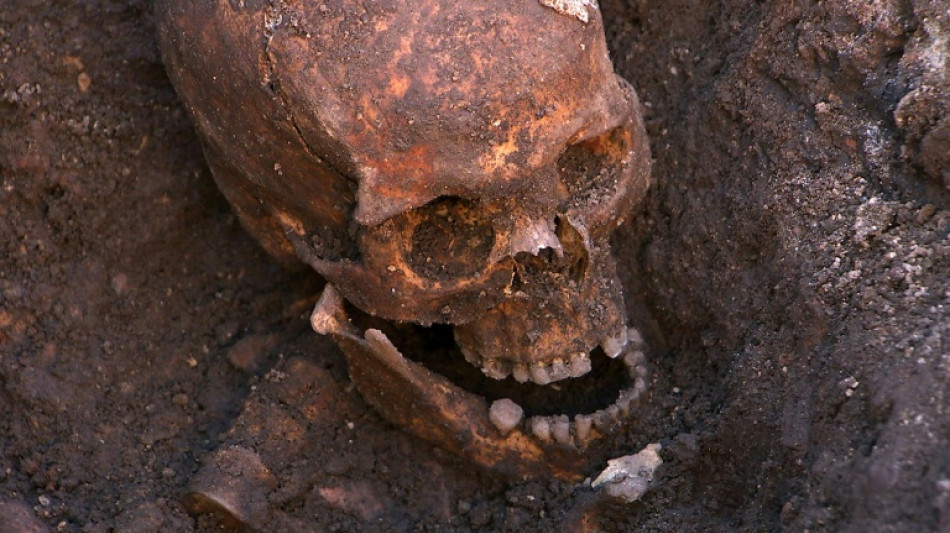
-
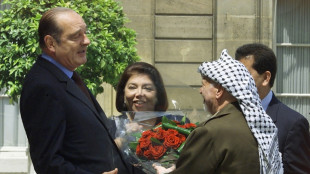 First woman envoy for Palestine dies in France: family
First woman envoy for Palestine dies in France: family
-
Laser-etched glass can store data for millennia, Microsoft says

-
 Intense US naval, air power buildup sets stage for potential Iran war
Intense US naval, air power buildup sets stage for potential Iran war
-
Slovakia beat Germany to reach Olympic men's ice hockey semis

-
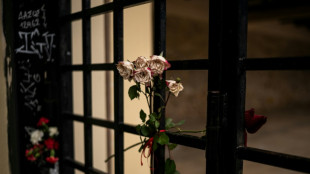 Greece to claim Nazi atrocity photos found on Ebay: minister
Greece to claim Nazi atrocity photos found on Ebay: minister
-
US energy chief says IEA must 'drop' focus on climate change

-
 Shiffrin remembers deceased dad after Olympic slalom gold
Shiffrin remembers deceased dad after Olympic slalom gold
-
Environmental groups sue Trump administration over dismantled climate rule

-
 Curling's air of gentility melts amid cheating row
Curling's air of gentility melts amid cheating row
-
Dube lifts India to 193-6 against Dutch at T20 World Cup

-
 Japan's Takaichi formally reappointed as PM following election victory
Japan's Takaichi formally reappointed as PM following election victory
-
Polish bishop goes on trial for paedophilia cover-up
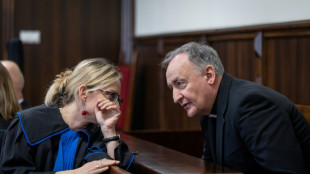
-
 Mikaela Shiffrin, skiing's greatest back on top of the world
Mikaela Shiffrin, skiing's greatest back on top of the world
-
Denmark's King Frederik X arrives in Greenland in show of support

-
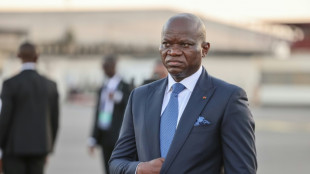 Gabon cuts off Facebook, TikTok amid teachers' strike
Gabon cuts off Facebook, TikTok amid teachers' strike
-
Ukraine's officials to boycott Paralympics over Russian flag decision

-
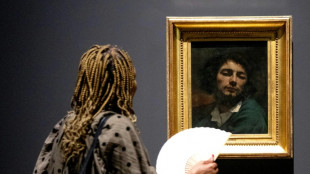 Notorious Courbet painting goes on show in Vienna
Notorious Courbet painting goes on show in Vienna
-
In reversal, US agrees to review new Moderna flu shot

-
 Glencore still open to 'mega-miner' deal after Rio collapse
Glencore still open to 'mega-miner' deal after Rio collapse
-
Shiffrin finally strikes Olympic gold, China win first title

-
 Russian era ends at abandoned launchpad in South American jungle
Russian era ends at abandoned launchpad in South American jungle
-
'Utterly absurd': Kosovo ex-president denies war crimes as trial closes
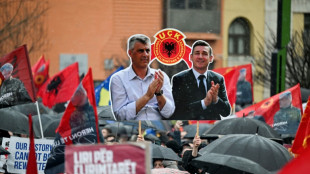
-
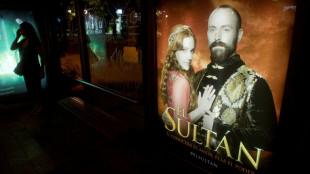 Turkey to give cash for soap TV series that boost national image
Turkey to give cash for soap TV series that boost national image
-
Man missing in floods as France hit by record 35 days of rain
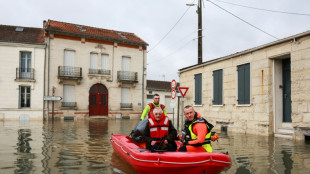
-
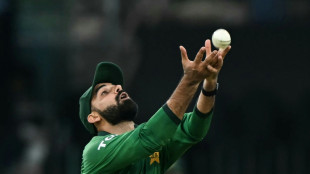 Our goal? Win World Cup, says Shadab as Pakistan into Super Eights
Our goal? Win World Cup, says Shadab as Pakistan into Super Eights
-
Birthday boy Su wins China's first gold of Milan-Cortina Olympics

-
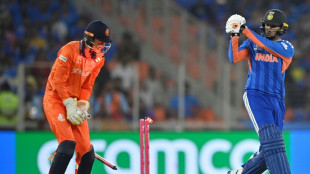 India opener Abhishek out for third straight duck at T20 World Cup
India opener Abhishek out for third straight duck at T20 World Cup
-
Biles consoles Malinin after 'heartbreaking' Olympic collapse
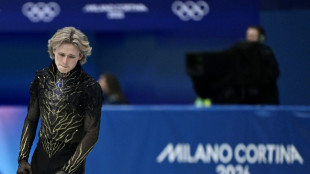
-
 US star Shiffrin wins Olympic slalom gold
US star Shiffrin wins Olympic slalom gold
-
Ukraine says 'outrageous' to allow Russian Paralympians to compete under own flag

-
 Liverpool captain Van Dijk hails Szoboszlai as future 'leader'
Liverpool captain Van Dijk hails Szoboszlai as future 'leader'
-
UEFA to investigate alleged racist abuse of Vinicius

-
 'It's my story': US skater Liu looking to upset Sakamoto and Japanese
'It's my story': US skater Liu looking to upset Sakamoto and Japanese
-
Cricket: T20 World Cup Super Eights explained
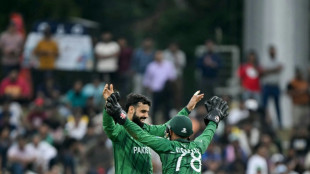
-
 Rennes turn to Haise to replace Beye as coach
Rennes turn to Haise to replace Beye as coach
-
Ton-up Farhan helps Pakistan seal Super Eight spot with Namibia rout
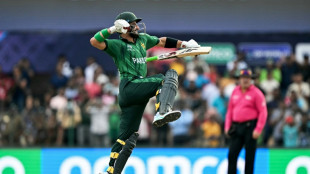
-
 Norway's Klaebo extends all-time Winter Olympics golds record to 10
Norway's Klaebo extends all-time Winter Olympics golds record to 10
-
Spanish police arrest hacker who booked luxury hotels for one cent

-
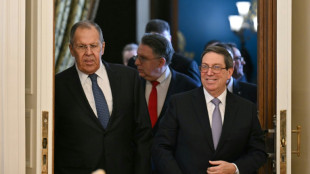 Russia, Cuba slam US in Moscow show of solidarity
Russia, Cuba slam US in Moscow show of solidarity
-
Germany's Merz casts doubt on European fighter jet plan

-
 Snowboarder Su Yiming wins China's first gold of Milan-Cortina Olympics
Snowboarder Su Yiming wins China's first gold of Milan-Cortina Olympics
-
How Real Madrid's Vinicius became repeated target of racist abuse

-
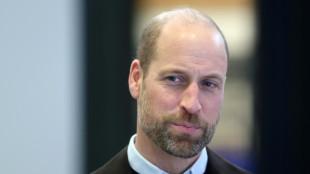 Prince William opens up on mental health, understanding his 'emotions'
Prince William opens up on mental health, understanding his 'emotions'
-
Farhan ton takes Pakistan to 199-3 in must-win T20 World Cup match
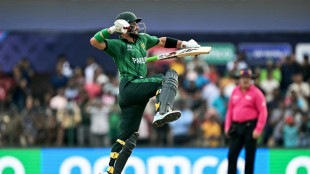
-
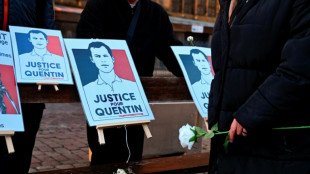 French hard left reports 'bomb threat' after far-right activist killing
French hard left reports 'bomb threat' after far-right activist killing
-
Gabon cuts off Facebook, TikTok after protests
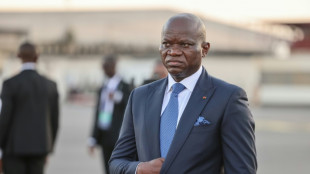
-
 India celebrates birth of cheetah cubs to boost reintroduction bid
India celebrates birth of cheetah cubs to boost reintroduction bid
-
Greek taxis kick off two-day strike against private operators

-
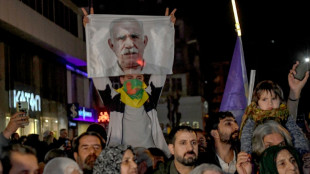 Turkey MPs back moves to 'reintegrate' former PKK fighters
Turkey MPs back moves to 'reintegrate' former PKK fighters
-
Sri Lanka unfazed by England whitewash ahead of Super Eights clash


UK 'princes in the tower' murder probe clears Richard III
It is one of history's most intriguing "murders" -- the mysterious disappearance over five centuries ago of two young princes from the Tower of London.
Nearly 200 years after they disappeared, two small skeletons were found in a wooden box at the historic tower and reburied at Westminster Abbey.
The remains were believed, but never proved, to be those of the two brothers -- heir to the throne Edward, 12, and Richard, nine, the sons of King Edward IV of England, who were reputedly murdered at the behest of their uncle, Richard Duke of Gloucester.
William Shakespeare later immortalised him in Richard III as a scheming hunchback who did away with his royal nephews so he could take the crown himself, sealing his reputation as a child killer.
Now British author Philippa Langley, who helped unearth Richard's body from a central England carpark in 2012, has claimed that the princes -- far from being killed -- actually survived.
The elder prince, Edward, was heir to the throne at the time of his disappearance and would have ruled as King Edward V of England.
Langley decided to delve into the mystery after coming to believe that the conventional narrative in which Richard had the young princes killed smacked of "history being written by the victors".
She was finally spurred into action after reading an article about Richard's reburial at Leicester Cathedral in 2015 which questioned whether the nation should honour a "child killer".
"I think I'd always realised that the story sort of developed during the reign of the Tudors," she said, adding that it was then "repeated and repeated over time" until it became "truth and fact".
- Tudor mud -
The last English king to die in battle, Richard ruled from 1483 until his brutal death at the Battle of Bosworth near Leicester in 1485, aged 32.
Bosworth was the last major conflict in the Wars of the Roses and changed the course of English history because the Tudor dynasty of Henry VII captured the crown from Richard's Plantagenets.
Langley attributes the accepted story that Richard had the boys murdered to King Henry VII, a "very, very intelligent individual, but suspicious and highly paranoid".
"He had a massive spy network working for him. And he was able to completely control the narrative," she said, adding that Richard ended up "covered in Tudor mud".
Taking a cold case review approach to the historical "whodunnit", Langley says she assembled a group of investigative specialists, including police and lawyers, to advise her.
"They said: 'Look, if you haven't got any confirmed, identified bodies, then it has to be a missing persons investigation and you have to follow that methodology'.
"They said: 'You have to actively look for evidence'. That's when it really started to get interesting."
Langley put out an appeal for volunteers to scour archives, only to be inundated with offers of help from people ranging from ordinary citizens to medieval historians.
The result was the decade-long Missing Princes Project which she says unearthed a significant amount of information pointing to the survival of both young princes.
- Survival theory -
Langley now believes that it is up to Richard's detractors to disprove the survival thesis, which she outlines in the new book "The Princes in the Tower: Solving History's Greatest Cold Case".
"The onus is now on them to find the evidence that the boys died.
"They cannot say Richard III murdered the princes in the tower any more because we found numerous proofs of life everywhere," she said.
Key to Langley's conviction that both boys survived are documents discovered supporting a rebellion by "Edward IV's son".
During the rebellion in 1487, Lambert Simnel, a pretender to the throne who came forward after Richard's death, was crowned in Dublin.
According to fresh references found by the project, the boy was "called" or said to be "a son of King Edward", which she believes points to Simnel being the elder prince, son of Edward IV.
The reaction to Langley's research has been mixed.
Michael Dobson, director and a professor of Shakespeare studies at the University of Birmingham's Shakespeare Institute, expressed scepticism.
"Given the ways of dynastic monarchy, I think Richard would have been taking a very big risk in leaving those princes alive," he said.
"The chances of their having accidentally gone missing while incarcerated on his orders in the Tower of London seem pretty remote."
Y.Nakamura--AMWN